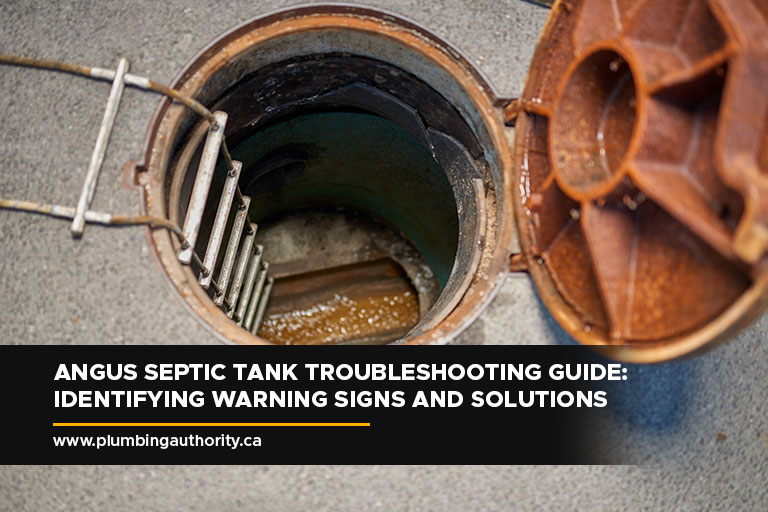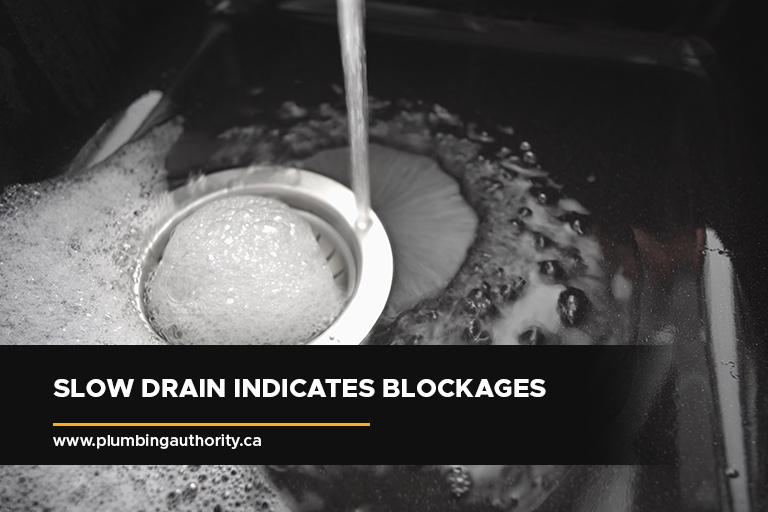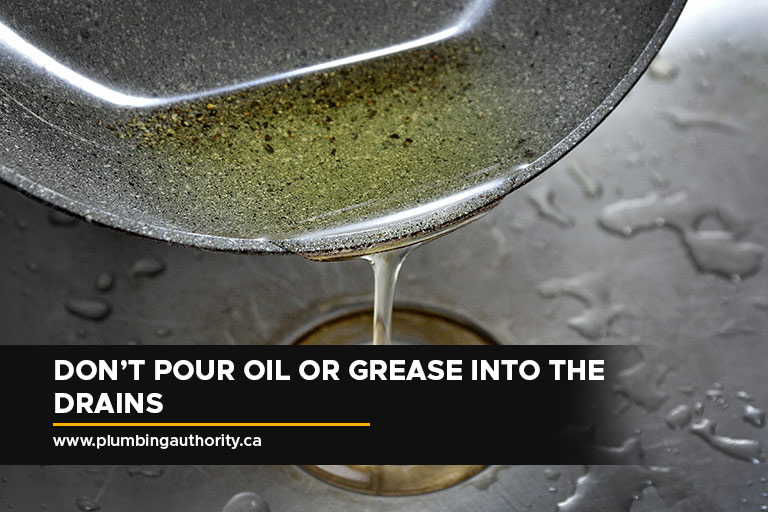
Septic systems play a crucial role in homes not connected to municipal sewage lines, offering an efficient way to manage household wastewater. In Angus, where the beauty of nature meets the comforts of home, maintaining these systems is essential to ensuring a harmonious balance between lifestyle and the environment.
Understanding your septic system’s workings and potential issues is the first step toward long-term maintenance and efficiency. Through awareness and timely action, many common problems can be avoided, saving time, money, and environmental impact. Whether you’re a new homeowner in Angus or looking to brush up on your septic system knowledge, this guide is designed to assist you in identifying early warning signs and implementing effective solutions.
Warning Signs: How to Spot Trouble Early

Slow drain indicates blockages
Spotting trouble with your septic system early can save you from costly repairs and environmental damage. Here are key warning signs to watch for:
- Unpleasant odours: Foul smells from your septic area or drains are telltale signs of inefficient waste processing. This often means that sewage is not adequately broken down, leading to the accumulation of gases and odours that should normally be contained or treated within the system.
- Slow drains: Drains that operate slower than normal suggest blockages or issues within your septic system, possibly from solids accumulating in pipes or the tank itself. This reduced flow rate can lead to backups, stressing your septic system and requiring immediate attention.
- Gurgling sounds: Gurgling noises post-flush or during water use point to potential blockages or backups within your plumbing. These sounds indicate air pockets formed by obstructions or irregular flow, highlighting issues in the waste processing chain that need prompt resolution.
- Water pooling: Standing water or soggy areas near your septic tank or drain field often signal leaks or overflows. Such symptoms suggest that wastewater is not properly filtered through the system, risking soil and water contamination and necessitating urgent repairs.
- Sewage backup: Sewage entering your home is a critical indication of a severe blockage or system failure. This presents significant health risks, reflecting a complete breakdown in waste processing and requiring emergency intervention to prevent further damage and hazards.
- Lush grass: Unusually green or lush grass over your drain field suggests excessive moisture, likely from a malfunctioning septic system. This can indicate effluent surfacing, where water, rather than being properly treated, provides unintended fertilization to the area.
- High nitrate levels: Elevated nitrate levels in well water tests near your drain field hint at septic leakage contaminating groundwater. This poses serious health risks, indicating a breach in the system that allows untreated sewage to affect your water supply.
- Septic tank alarms: Alarms from your septic system serve as direct alerts to high water levels or other malfunctions. Ignoring these warnings can lead to system overflows or failures, emphasizing the need for immediate investigation and remediation.
- Increased pests: A rise in pests around your septic tank can be a sign of leaks or issues within your system. Pests are attracted to the nutrients and moisture from leaks, indicating breaches that could lead to environmental damage and require prompt fixing.
- Difficulty flushing: Struggling to flush toilets or noticing backups when using appliances signals that your septic system may be over capacity or blocked. This indicates that waste and water cannot flow freely, stressing the system and potentially leading to severe malfunctions.
Solutions: What to Do

Don’t pour oil or grease into the drains
When faced with signs of septic system trouble, consider the following solutions:
- Regular inspection and pumping: Regular professional inspections and pumping of your septic tank, ideally every 1-3 years, are crucial to prevent the system from overloading. This practice helps in avoiding sewage backups into your home and ensures the longevity and efficiency of your septic system.
- Conserve water: By reducing your household’s overall water consumption, you can decrease the volume of wastewater your septic system must manage. This conservation helps in preventing the system from becoming overwhelmed, significantly reducing the likelihood of backups and system overflows.
- Repair leaks promptly: Immediate repair of any leaks in your household plumbing prevents additional water from entering your septic system, which can lead to overload. Keeping water input in check ensures your system operates within its capacity, avoiding potential malfunctions.
- Avoid harsh chemicals: Using harsh chemicals, like chemical drain cleaners and solvents, can disrupt the biological balance within your septic system, harming its ability to break down waste. Opting for natural cleaning alternatives protects your system’s functionality and extends its service life.
- Proper waste disposal: Flushing non-biodegradable items, such as wipes, feminine hygiene products, and cooking grease, can cause blockages and backups in your septic system. Proper disposal practices are essential to maintain system health and avoid costly repairs.
- Maintain your drain field: The drain field plays a critical role in the septic system by filtering and absorbing wastewater. Ensuring this area is free from heavy objects, vehicles, and excessive water prevents system overload and ensures efficient wastewater treatment.
- Educate your household: Educating all household members on what should not enter the septic system is key to preventing blockages and malfunctions. Understanding the importance of this can lead to better waste practices, contributing to the system’s overall health and effectiveness.
Prevention is Key
Proactive measures can significantly reduce the risk of septic system failures:
- Understand your system’s capacity: Knowing the size and limitations of your septic system can help you manage usage effectively.
- Landscape wisely: Planting the right type of vegetation around your drain field can aid in absorption and prevent erosion without causing root damage to your system.
- Regular maintenance: Adhering to a routine maintenance schedule can prevent many common septic system problems.
- Use water efficiently: Installing water-saving fixtures and appliances can reduce the amount of wastewater entering your septic system.
- Monitor what goes down the drain: Educate your family about the importance of not disposing of harmful materials via sinks and toilets.
- Professional consultations: Regular check-ups by a septic service professional can help catch issues before they escalate.
Maintaining a healthy septic system in Angus is crucial for environmental sustainability, property value, and the well-being of your household. By staying vigilant to warning signs and implementing timely solutions, you can ensure your septic system operates effectively for years to come. Remember, prevention is your best defense against septic system failures. Regular inspections, mindful usage, and immediate attention to potential issues are key to avoiding costly repairs and environmental damage.
Should you encounter any septic system issues or require professional advice, don’t hesitate to contact Plumbing Authority at (647) 992-7473. Our team of experts is ready to assist you with comprehensive septic system services, ensuring your home remains a safe and comfortable place for you and your loved ones.




